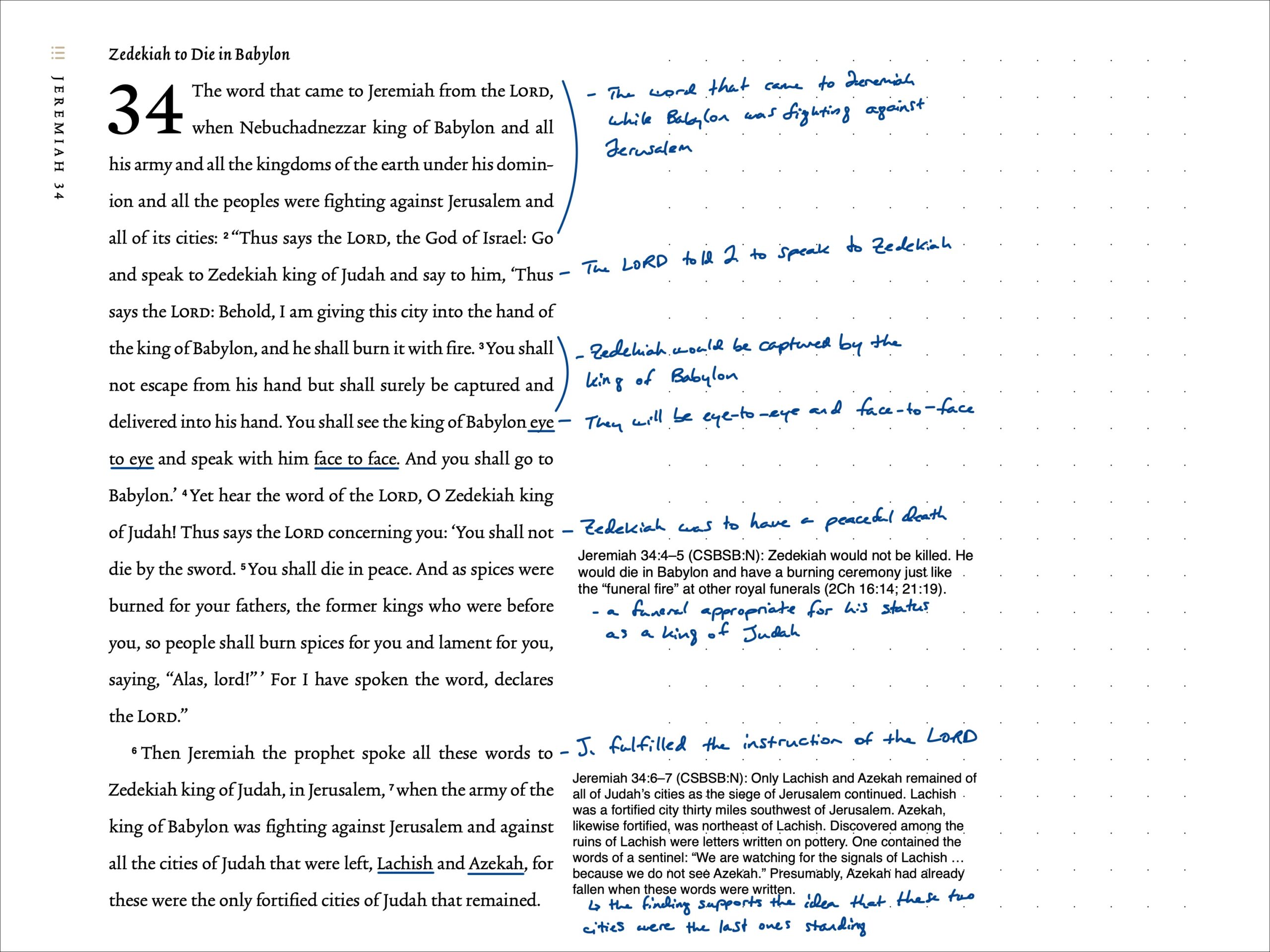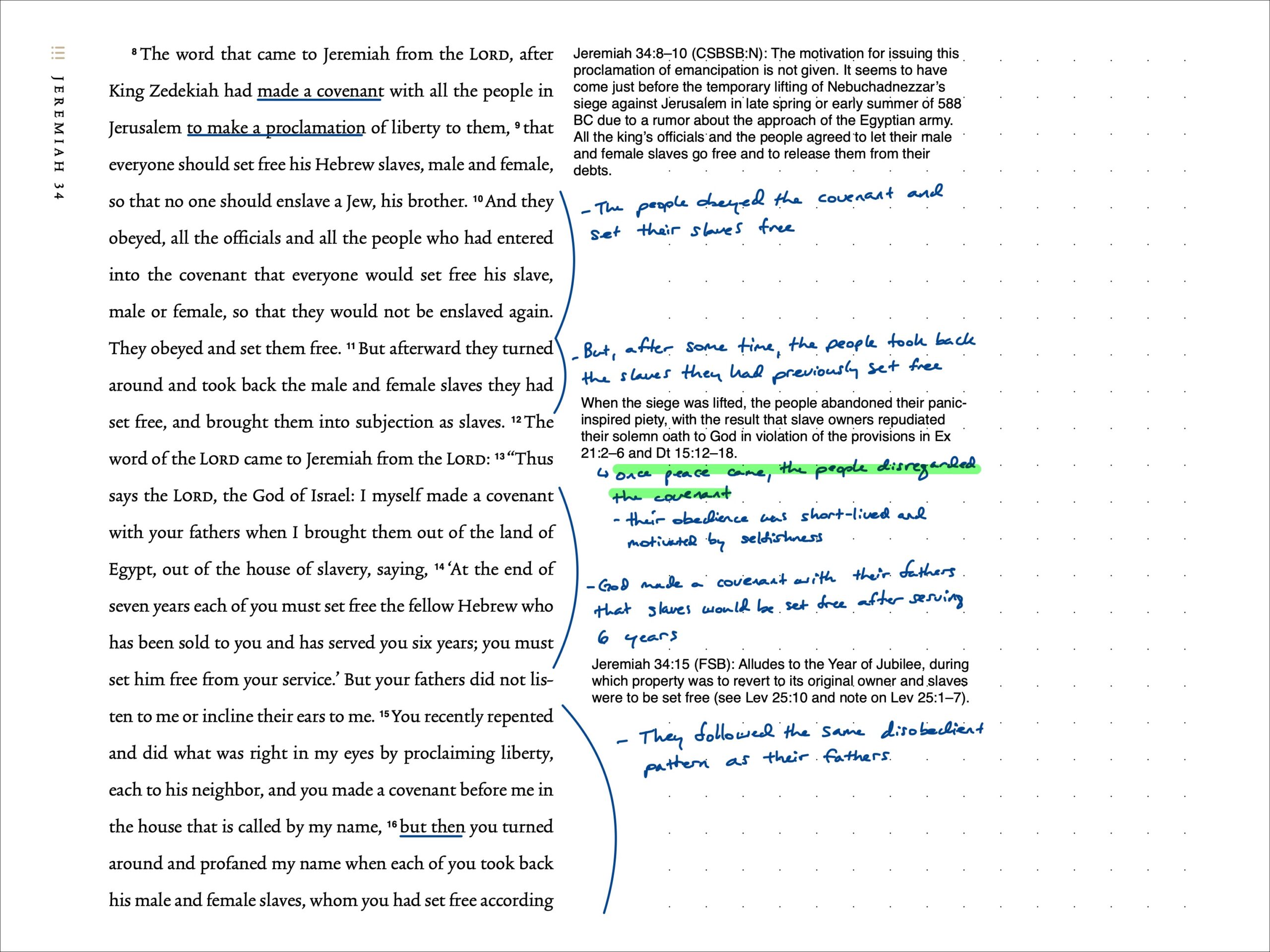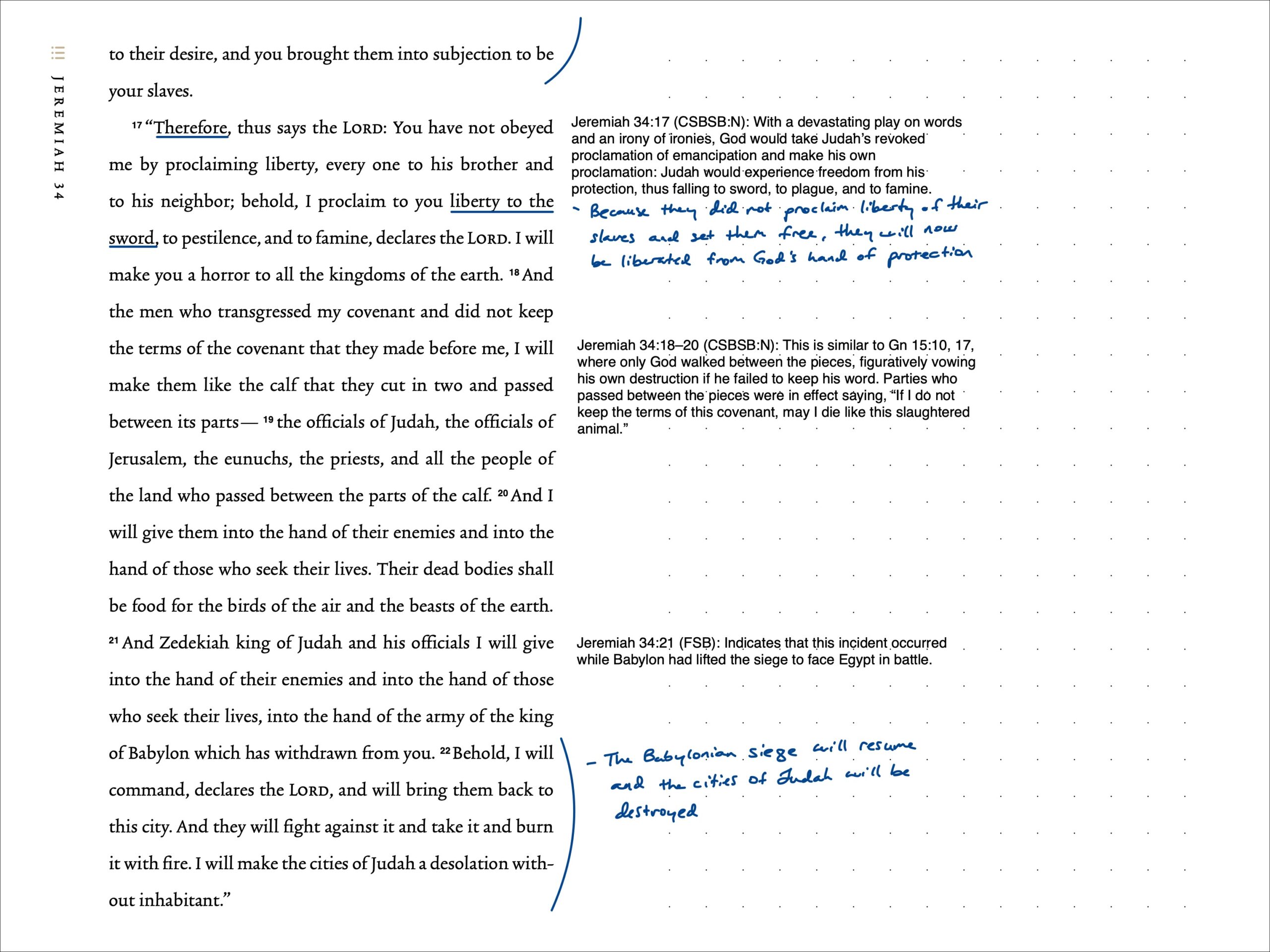| Date | Version | Reading Plan |
|---|---|---|
| @July 27, 2023 | ESV (2016) | ESV Prophets Plan 2023 |
Pericopes
- Zedekiah to Die in Babylon
Notes
The chapter opens with a word that Jeremiah received from the LORD while Babylon was fighting against Jerusalem. The LORD told Jeremiah to speak to Zedekiah, king of Judah, and that he would be captured by the Babylonian king. Zedekiah would see Nebuchadnezzar “eye to eye and speak with him face to face” (Jer. 34:3) but would not die by the sword. Instead, he would die “in peace” and have an honorable burning ceremony appropriate for his status as a king of Judah (Jer. 34:5).
In Jer. 34:6-7, Jeremiah fulfilled the instruction he was given and spoke to Zedekiah while Babylon was fighting against the last two cities that were left, Lachish and Azekah (Jer. 34:7). Letters written on pottery have been discovered that corroborate this narrative that these two cities of Judah were the last ones standing.
Jer. 34:8-10 describe a covenant made by God “with all the people in Jerusalem to make a proclamation” that “everyone should set free their Hebrew slaves.” (Jer. 34:8-9). The motivation for the emancipatory proclamation is not given, but it came just before the lifting of Nebuchadnezzar’s siege against Jerusalem in early summer of 588 BC due to a rumor about the approach of the Egyptian army.
However, in Jer. 34:11, the people eventually “turned around and took back the male and female slaves they had set free”. When the siege was lifted, the people abandoned their panic-inspired piety and repudiated their oath to God, violating the provisions given to them in Ex. 21:2-6 and Deut. 15:12-18. Motivated by selfishness, the obedience of the people was short-lived and, once peace came, they disregarded God and the covenant into which they had entered.
In Jer. 34:13-16, God recounts how He had made a covenant with the people to bring them out of the land of Egypt and that their slaves were to be freed after six years of service. This alludes to the Year of Jubilee, during which property was to revert to its original owners and slaves were to be set free (Lev. 25:10). However, their fathers did not listen in that time (Jer. 35:14) just as they were not listening in this time of the Babylonian siege. They were following the same rebellious pattern of their fathers.
The remaining verses (Jer. 34:17-22) speak of the the result of this disobedience. Because they did not proclaim liberty on their own slaves, God would proclaim liberty on them by freeing them from His hand of protection. Ouch. The men who transgressed the covenant will be made “like the calf that they cut in two and passed between its parts” (Jer. 34:18). This alludes to Gen. 15:10 and Gen. 15:17 where God made a covenant with Abram to number his offspring like the stars. In this gesture, the parties would pass through the dead animal pieces as a means of saying that may they die like the slaughtered animal if they fail to keep the covenant.
In the final verse (Jer. 34:22), God declares that He will bring the Babylonians back to the city to fight against it. He will burn it with fire, destroying all the cities of Judah, making them “a desolation without inhabitant.”
Application
How the people so quickly withdrew from the covenant to free their slaves is a salient illustration of the human condition. When the pressure is on, we will negotiate and promise just about anything to get out of whatever predicament we find ourselves. I think of exhausted Esau thoughtlessly giving away his birthright to Jacob for some red stew (Gen. 25:29-34). And, sure enough, as soon as reprieve is granted, the promise made suddenly becomes hazy and our adherence to it shaky.
This chapter provides such a beautiful contrast of fallen humanity with the steadfastness of our God. There is no wavering, no faltering, no shakiness in the Lord. Much like the song, all His promises are “Yes.” and “Amen.”. Their fulfillment is always perfect and it is on this firm foundation we can rest, secure in our understanding that “he who began a good work in you will bring it to completion at the day of Jesus Christ.” (Phil. 1:6). What an encouragement it is that we serve a God who succeeds where we fail and perseveres in every way we cannot.
Scripture Journal Notes
Commentaries & Resources Used
- ESV Study Bible. (Wheaton, IL: Crossway, 2008)
- Faithlife Study Bible (Lexham Press, 2016)
- Believer’s Bible Commentary (Thomas Nelson, 2016)
- CSB Study Bible Notes (Holman Bible Publishers, 2017)
- Matthew Henry’s Commentary on the Whole Bible (Guardian Press, 1976)
- The Bible: A Reader’s Guide (Sterling Publishing, 2011)
- The Infographic Bible (Zondervan, 2018)
- ESV Digital Scripture Journal (Crossway, 2019)


